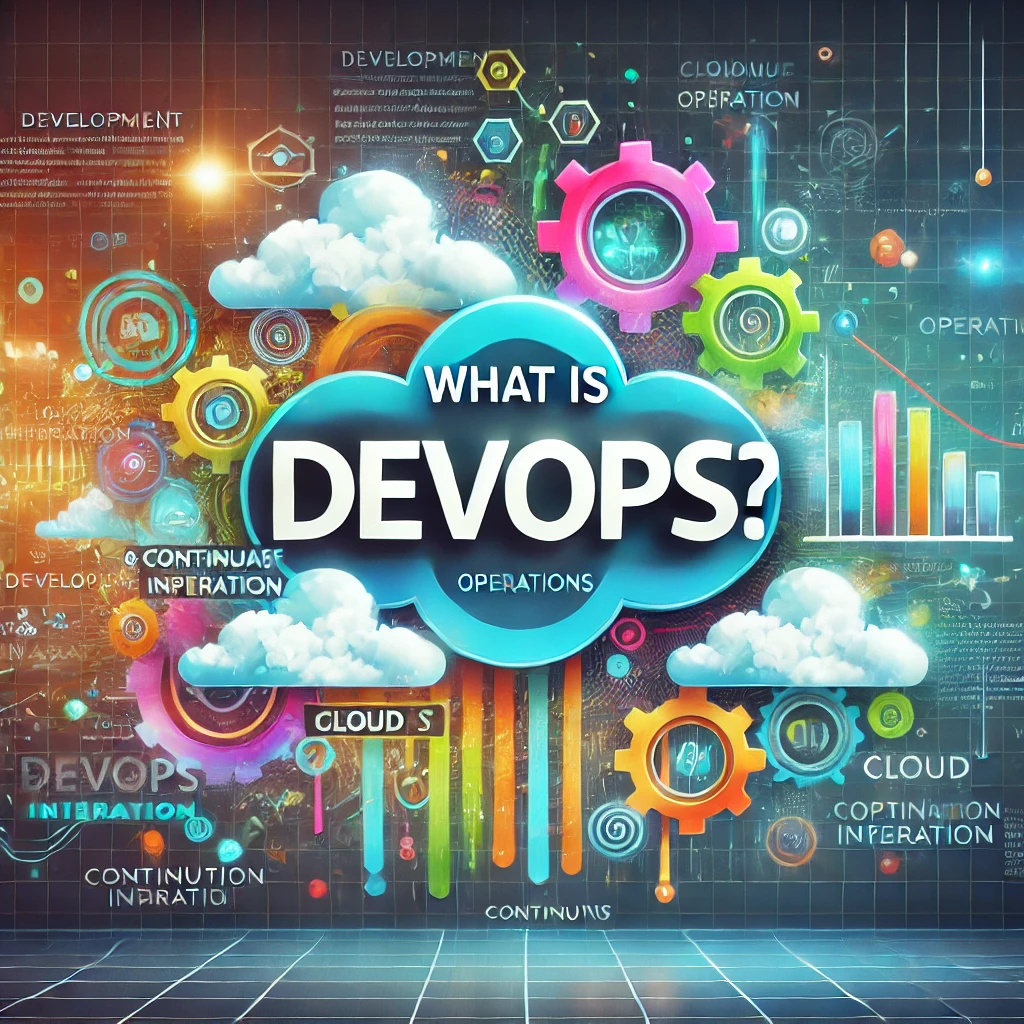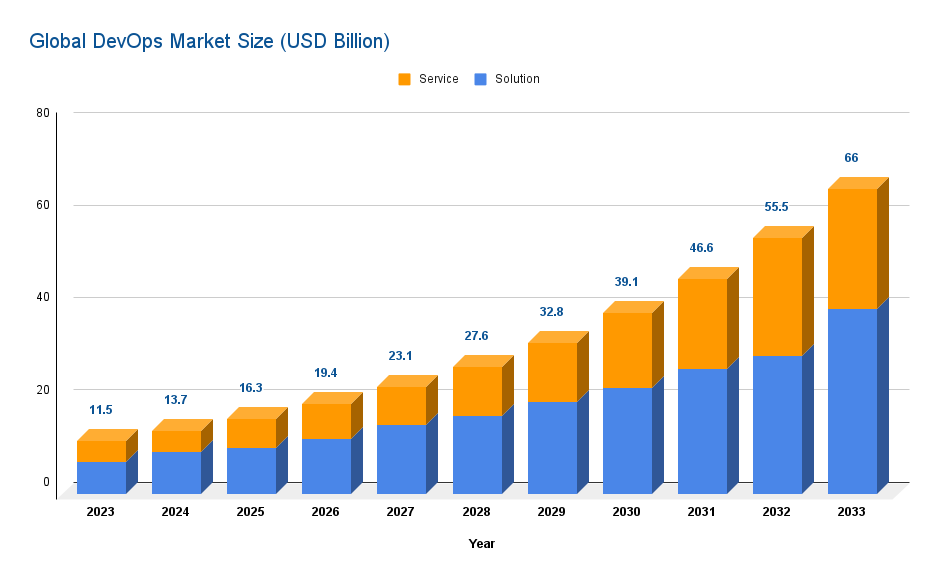Transform Your Career To DevOps Expert
Practical guides, tools, and projects to help you master the DevOps landscape and build a future-proof career.

What is Devops ?
DevOps is a modern approach that bridges the gap between software development and IT operations. It focuses on collaboration, automation, and continuous improvement to deliver software faster, more reliably, and with fewer errors. By integrating development and operations teams, DevOps streamlines processes, enhances productivity, and ensures high-quality releases
Why Transition To Devops ?
DevOps Market size is expected to be worth around USD 66.0 Billion by 2033, from USD 11.5 Billion in 2023, growing at a CAGR of 19.1% during the forecast period from 2024 to 2033.

Advantage of Devops
- Faster product launch.
- Better customer satisfaction.
- Competitive market edge.
- Better organisation growth.
- Better career opportunity
- Simplifies workflows for developers.
- Speeds up development lifecycle.
Devops Tools
A collection of essential tools that automate and streamline software development, testing, deployment, and monitoring. These tools help enhance collaboration, improve efficiency, and ensure high-quality releases in the DevOps lifecycle.
GIT (Versioning)
Git is a distributed version control system. It enables collaboration, branching, and versioning for efficient code management.
Docker (Containerisation)
Containerization platform to package applications and their dependencies. Simplifies application deployment and scaling.
Kubernetres (Orchestration)
Manages and orchestrates containerized applications at scale. Automates deployment, scaling, and management.
Gitlab-CI (CI/CD)
Automates software delivery pipelines directly within GitLab. Supports CI/CD with integrated version control.
Jenkins (CI/CD)
Automates software development processes like building, testing, and deployment. Widely used for continuous integration and delivery.
ArgoCD (CD)
A GitOps continuous delivery tool for Kubernetes. Manages Kubernetes resources using Git repositories for version control.
Terraform (IAC)
Uses infrastructure-as-code to provision and manage cloud resources. Supports multi-cloud and hybrid cloud environments.
Ansible (Config Management)
Automates configuration management, application deployment, and system administration. Uses simple, declarative language for setup.
Helm (K8s Package Manager)
Helm is package manager for Kubernetes that simplifies the deployment and management of applications. It uses charts to define, install, and upgrade Kubernetes resources.
Prometheus/Grafana (Monitoring)
Prometheus collects and stores monitoring data, while Grafana visualizes it through customizable dashboards. Together, they enable powerful monitoring, alerting, and data visualization for systems and applications.
ELK/EFK (Logging)
ELK (Elasticsearch, Logstash, Kibana) and EFK (Fluentd instead of Logstash) provide centralized logging solutions. They collect, process, and visualize log data for better monitoring and troubleshooting.
Jaeger (Tracking)
Jaeger is an open-source distributed tracing system that helps monitor and troubleshoot microservices-based applications. It collects, stores, and visualizes traces to track performance and identify bottlenecks.
“DevOps is not just a set of tools and processes, it’s a cultural shift in how we approach software delivery. The future of DevOps is about automating everything and making it easier for teams to collaborate, innovate, and deliver at speed.”
Watch, Read, Listen
No posts were found.